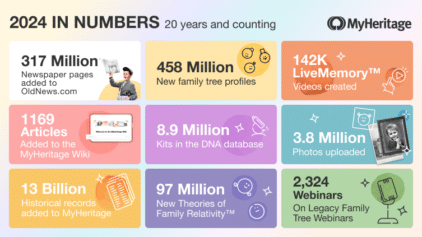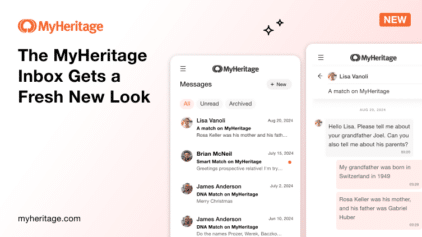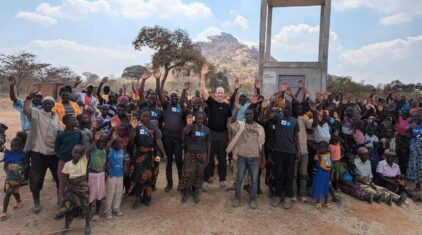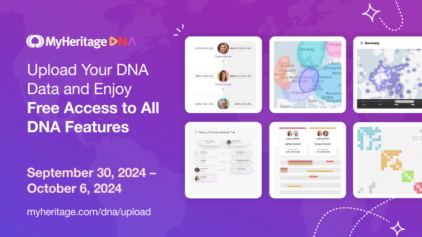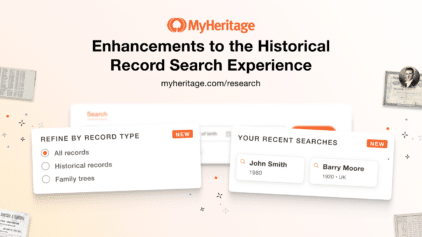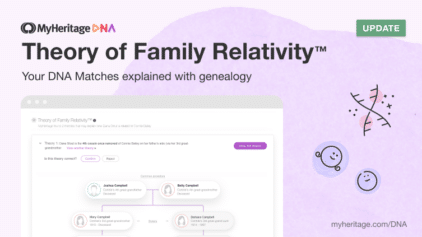MyHeritage Chief Science Officer Yaniv Erlich Speaks at TEDMED
- By Esther
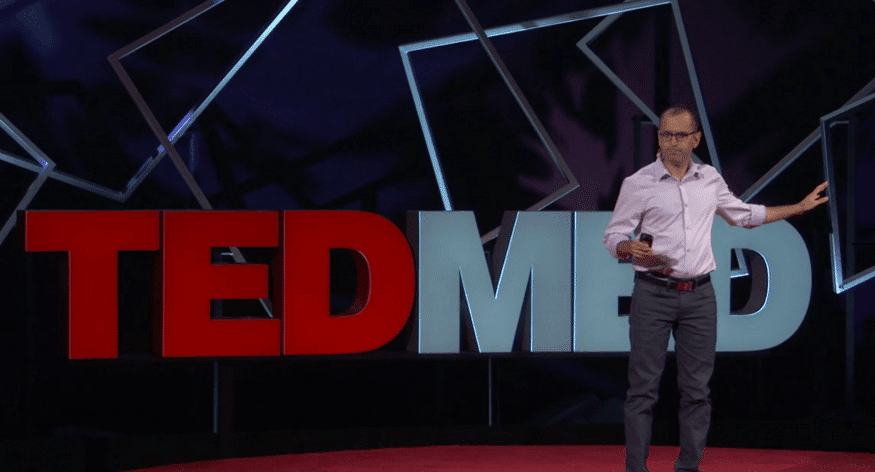

MyHeritage’s Chief Science Officer, Dr. Yaniv Erlich, recently gave a talk at TEDMED, the global community dedicated to sharing impactful ideas and empowering leaders of change across health and medicine.
Yaniv spoke about the immense potential of biomedical research and the many insights we can gain from genealogy research. These insights include longevity of individuals, migration patterns, new clues to solve cold-case crimes, and more.
Watch Yaniv’s TEDMED talk here:
Some Family History
Yaniv starts out his TEDMED talk describing “Uncle Bernie,” the archetypal family genealogist who corners family members to get more information. As a child, Yaniv liked genealogy quite a lot. Like many Israeli teenagers, he conducted his own genealogy project in seventh grade. It was so much fun that he asked his mother to take him, several times, to the Museum of the Jewish People at Beit Hatfutsot — which had one of the only sources for genealogical information available at the time. One thing he loved was how history intersects with family stories, and the process of finding ancestors felt like detective work. After doing such a good job on the project, Yaniv won the title of best genealogy project of the year at his middle school. The current family genealogist is now his aunt.
The last time Yaniv spent time on his family genealogy was after his father passed away 2 years ago. He found the process therapeutic and healing: “In some way, I felt that tracing my ancestors connects me to my father and his childhood, and reviewing the lifecycles of my family relatives gave me some serenity and comfort that the sorrow that I’m experiencing is simply part of the endless rivers of generations.”
The World Family Tree
During the time that Yaniv was finishing up his Ph.D. studies, he was invited to join the site Geni.com. He was slowly becoming more interested in human genetics, and the site intrigued him. When he started documenting his family tree on the website, he was shocked to discover that many of his relatives were already on the site. This got him thinking — family trees are one of the most valuable assets in human genetics. Yet, large family trees are very hard to collect.
A few months later, Yaniv started his own independent research group at the Whitehead Institute of MIT. As one of the lab’s first projects, he decided to try to collect all the data from Geni.com. After Geni agreed, they instructed him on how to collect the data, and eventually 86 million public profiles were downloaded from Geni.com. Over time the project grew, eventually spanning 8 years from inception to publication.
The Key to Long Life
One of the traits Yaniv studied was the relationship between genetics and longevity. The question of what might influence our lifespan is important to us as individuals and as a society, but before this study, not much was known about the genetic component. Yaniv mentioned that some studies have suggested that 25% of the variance in longevity can be attributed to genetic differences, but that this claim was never backed up by research.
Using the Geni.com data, Yaniv and his team studied the longevity readout of millions of pairs of relatives. Their analysis showed that longevity is much less heritable than previously thought: only ~15% of the variance in the population can be attributed to genetic differences.
Moreover, their results suggest a solution to an ongoing debate in human genetics regarding the way genetic variations affect traits. The study showed that the value of each genetic variant is independent of the other variants, and is not affected by the status of other variants, as some have thought. Yaniv says that this is actually great news for precision medicine because if each variant works independently, it means that it should be easier to find those longevity variants in the future.
Migration Patterns
Another interesting and surprising finding in Yaniv’s research was that families tend to stay in the same location. He found that most of our third cousins are only a few tens of kilometers apart, and most of us will find our spouse about 100km from where we were born.
The Future of Genealogy Research
According to Yaniv, DNA is clearly the key to the future of genealogy. He highlights an ongoing revolution in this field. DNA tests enable genealogists to find relatives beyond the information located in genealogical records and can be used as a tool to validate these records. In addition, DNA helps solve cases when records are missing, such in the case of adoptees, Holocaust survivors, and even child trafficking.
Thanks to the genomics revolution, DNA tests such as the MyHeritage DNA test are now highly affordable, democratizing access by growing segments of the population. A recent Technology Review article estimated that more than 26 million people took such tests, and the uptake shows an exponential increase. So some estimate that in a decade, most people in Western societies will have access to their DNA information. This means that we might be able to build a global family tree based on DNA matches as well as genealogical information and family stories.
Yaniv is passionate about science and the enormous potential that he has to lead MyHeritage in substantial contributions to the fields of genetics, anthropology, public health, economics, and others. Stay tuned for his next adventures!

